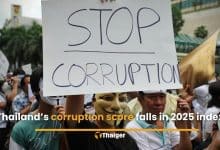Charged up: Thai finance chief sparks debate on EV development

Thailand’s finance permanent secretary stressed the need for the country to continue developing its electric vehicle (EV) sector, despite concerns about the arrival of the Chinese EV supply chain in the local automobile industry. Lavaron Sangsnit warned that without active policies to encourage EVs, Thailand may be overlooked as a locale for factory establishment due to the lack of essential battery production raw materials.
“Creating domestic demand for EVs is the first step in establishing the EV industry in Thailand. The question is, will companies invest in factories here if there isn’t a substantial local demand?”
Lavaron highlighted the importance of not only catering to the local market but also considering exports to Southeast Asia, a move that would enable Thailand to leverage the privileges of the ASEAN Free Trade Area (AFTA).
Lavaron’s priority is to incentivise EV manufacturers to select Thailand as their factory location, confident that they will eventually use locally produced parts due to the high quality provided by tier 2 and 3 auto parts suppliers in the country.
Panyapiwat Institute of Management’s president and scholar on the Chinese economy, Sompop Manarungsan, echoed these sentiments. He pointed out that for Chinese manufacturers to sell EVs in the ASEAN market, they must comply with the AFTA rules of origin, necessitating the use of at least 40% of materials or components produced within ASEAN to qualify for tax benefits.
Sompop outlined several reasons why China might be interested in investing in EV production in Thailand, including a strong automotive supply chain and government-backed incentive packages such as subsidies and tax cuts for EV adoption. Sompop noted that these measures are more attractive to buyers than those offered by regional competitors, reported Bangkok Post.
“Thailand’s auto industry, capable of producing up to two million vehicles annually, with a majority for export, is substantial. While Indonesia may have lithium reserves for EV battery production, Thailand’s auto industry is considerably larger, positioning it to transition into the EV era faster than Indonesia.”
Latest Thailand News
Follow The Thaiger on Google News:


























